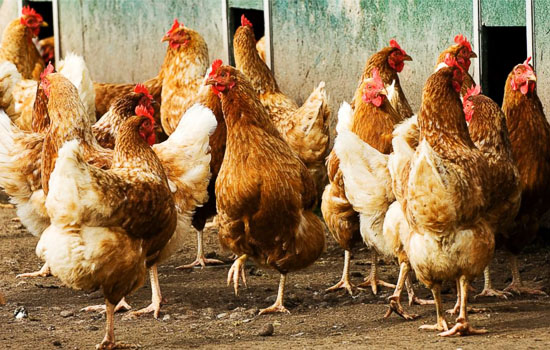Now this season is in the spring, the weather is changing, the temperature difference between day and night is relatively large, and the temperature is gradually warming, it is easy to make a large number of pathogenic microorganisms in the broiler cage chicken house. Moreover, the density of chickens used in automatic broiler chicken cages is relatively large and the number is relatively large. However, farmers are not well managed at this time, which easily affects the health of broilers. In this season, broiler chickens are raised, and farmers need to be manpower from the following management points.
First, strengthen the disinfection work. Disinfection work is done no matter what season, disinfection is an important and effective means of preventing diseases. In the process of breeding broiler chickens, the disinfection workers need to grasp three links, before and during the feeding of the chicks. Before the chicks enter the house, the farmers should strictly flush and disinfect the chicken houses and broiler battery cages and other tools. There are three main points to be mastered during the feeding period: the disinfection tank should be set at the door of the chicken house, and the disinfectant water should be replaced frequently. Before feeding the chicken, the work clothes should be replaced and the hands and shoes should be disinfected. It is necessary to insist on regular disinfection inside and outside the chicken house, usually once a week in the spring season, and increase the number of disinfection when the chickens are sick. After the chickens are released, the chicken manure inside and outside the chicken house should be cleaned up in time, and the inside and outside of the house and the chicken cages and tools should be thoroughly cleaned, washed and disinfected.
Second, the correct vaccination. There are many common diseases in spring, so farmers should pay attention to the immune work of broiler chickens in the spring. Farmers can make reasonable immunization procedures according to the local epidemic situation and common diseases in the season, and strictly inoculate the vaccine. There are many ways to vaccinate, and farmers can proceed according to the disease and the actual situation.
Third, strengthen feeding management. The unstable temperature in spring will easily affect the health of the flock. Therefore, the farmers can create a comfortable environment for the chickens to grow well and reduce the occurrence of diseases and obtain good economic benefits. The main points of feeding management should pay attention to and strengthen from the aspects of temperature, humidity and ventilation of the house. Usually, observe the chickens and check whether the environment of the house is suitable.
Fourth, regular feeding of drug prevention. In the spring, common and easily available diseases in broilers are: colibacillosis, salmonellosis, chronic respiratory disease, coccidiosis, and the like. Most of these diseases are closely related to the age of the chicken and environmental changes. Therefore, farmers need to carefully understand the chicken diseases that are easy to occur in broiler chickens at various ages and at each feeding stage, and timely administration can achieve the purpose of prevention.
5. Early detection of sick chickens as soon as possible: During the breeding process, farmers should pay attention to observing the flocks. It is possible to detect diseases as soon as possible so as to avoid delays in good treatment. Early detection of the disease can be started from the following aspects: check the flock every day (in the morning), pay attention to the spirit, activity and feces of the flock, observe the feed intake of the chicken every day, and listen to the flock outside the house every night. There are no bad breath sounds.
The above five key points of feeding are described by the author. In the process of using poultry farming equipment to raise chickens in the spring, the breeding management points of broiler chickens are raised only for reference by farmers. Farmers also need to combine their own actual conditions to properly raise chickens.
